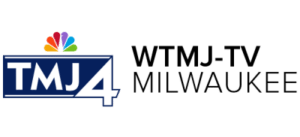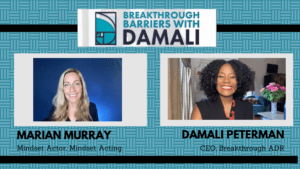Date: February 17, 2022
- What do you want people to know about you? Describe yourself in 6 words.
Dr. Icilma: I’m resilient, compassionate, very empathetic, creative. And okay, I say, busy all the time. I’m a busy person, but I try to wrap all those other things into it as well. Tell us your name, your business name or industry, location and description. Why are you in this field? How did you get here?
Dr. Icilma: Okay, so great story. I was actually influenced by one of my family members. Everything became solidified and I started doing more community outreach by experience when I was a medical student, and then later on with a young mother. So my own aunt, who is my only paternal aunt on my father’s side. She was born with something called Congenital Heart Block. Where her heart was beating fast enough. And she needed to have a pacemaker at a very young age. And she died in the 40s because she really needed that pacemaker and it got to what we call end of life, the battery runs out, you’re supposed to have it replaced way before that happens. And so with the disparities and not health equity, she wasn’t able to get the pacemaker on time and she passed away. So that really, you know, was a driving factor in yes, I want to, you know, take care of the heart but I want to also be able to deal with, you know, health equity and in ameliorating disparities.- What was your single biggest challenge in running your business or working in your industry throughout the pandemic?
Dr- Icilma: I know that Coronavirus has been around for centuries, but this particular one had so many comorbidities associated with it. That was scary. And again, dealing with disparities, I know that the people of color the brown and the black and the elderly and even women would have possibly been more effective by dint of the fact that they were in our so that was that was something for me. I also had to be deployed as if you’re going to war. You have to leave your home. And, and your field. I’m a cardiologist. This is an infectious disease issue ,but it’s all the organs but we were deployed all of us and had to. I remember going to spend time in a hotel, away from my family while I was on the floor.
- Like the Elton John song, you are still standing. Where does your resilience come from and how do you tap into it?
Dr Icilma: You know, that’s a great question. And I tap into it by looking internally and finding things that make me happy. And things that make me happy then allows me to interact with people in a way that really I truly understand I empathize, I can place myself in those situations and allow myself to be a partner in my patients care and with that, you get like, the best outcomes because not only you’re fulfilled as a provider, and as a caregiver, but also the individuals are themselves participating in their own care. They have an engaging partner and that’s a win-win situation. But I tap into things that make me happy and I’m a creative scientist. So I do all these other things like mentoring, and I did on a couple of medical missions to the Caribbean and mentoring students.
- Any mistake you made that you want to prevent others from making?
Dr. Icilma: As we’re humans, we never know whether we made the right choice or not. We always second guess, but we’ll never know what would have happened if we had gone down that different path. Right. And so I ended up going into Dartmouth and, and, and then I was disinvited by my guidance counselor from applying to MIT. Right? Maybe if I had done that I might have been more of a scientific maybe engineer type person very rigid. I ended up actually for multiple reasons. Going to SUNY Downstate for my medical school, but then I you know, then I went on to Albert Einstein, and I did my undergrad at Barnard Columbia and my fellowship at Cornell so I ended up you know, coming back into that whole space, but, you know, I think that nothing is a mistake, but if you think it is, you build on it, you, you know, you take those potential, you know, mishaps and you build on them, and you make a success out of them. And you use them as a learning tool to propel yourself forward. And then if you can help, it is always so rewarding and so great to have young mentees that come behind you that you could say you know what, I did this, but here are the potential consequences and maybe you do it this way. But even if you choose to do it that way, then take the benefit out of it and look for the positives and build on those verses reflecting on something that already happened. So that’s my message. You know, obviously everything is not always, you know, happiness and all of that, but you can take from any experience that may not be as positive as you would like to be and build on it so that it will become that positive light at the end of the tunnel.
- Each one. Teach one. Suggest a book, song, course, program for our listeners.
Dr. Icilma: Music therapy is amazing. And so, sometimes when I’m working, I just, you know, find the music that I like and I have a very eclectic taste. So all genres are actually great to me and I just have to find the ones that I like. But there are two books that I’d like to recommend. I had the opportunity to meet Arianna Huffington. So, Arianna’s book,Thrive , is a good one. And then there’s this other book. It’s called Get Out of Your Own Way. And it’s by Mark Goulston, MD And Philip Goldberg. And basically it offers practical lessons are conquering procrastination, fear and the and all these other things that kind of can get in your way. That may keep you sort of circling in that one sort of face instead of getting out of it. So this is get out of your own way. Because sometimes we can be our own worst enemies in terms of, you know, not following that dream, that idea, that light that somewhere down the road, because we’re too caught up in these things that we’re hanging on to so if you get an opportunity to read that book, that’s an amazing book to read. So those are the two that I would recommend.


